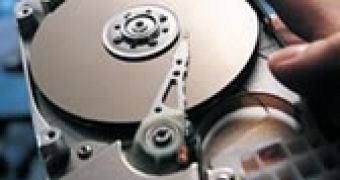When the solid state drives, SSDs for short, hit the market there were wild speculations about the imminent decease of the traditional long term storage solutions like hard disk drives, HDDs for short, as the new flash memory based drives offer a number of strategical advantages over the older solution. But as the industry realized that flash based drives are very expensive to manufacture and while they might be faster and more power efficient than the hard disk drives they are also severely limited when it comes to the total storage capacity available to users for a certain sum of money.
So, another trend appeared which stresses the importance of optimizing the traditional hard disk drive design for both speed and energy efficiency. According to the news site cnet a Japanese company named DTS is aiming at creating an affordable and efficient hybrid hard disk which is composed of a number of platters and some flash based memory that acts as a memory buffer for increased speed. The DTS solution is to combine a 2.5 inch laptop hard disk drive with 1GB of random access memory which gives some interesting results as the RAM takes off much of the HDD work and speeds up access and file retrieval. In order to handle all the computations necessary for such a hybrid HDD to work, the DTS company also included a dedicated central processing unit into the drive itself.
As the used memory is a volatile one it loses any stored information when the drive is powered off and so it is less well suited for its task of speeding up the boot process of the host computer than the flash based solid state drives which can maintain their data for extended periods of time. On the other hand the random access memory is much faster than flash based memory so once the system is up and running, all data transferring speeds are much improved over the SSDs. As the hybrid disk drive comes with a whole gigabyte of random access memory to be used as a cache, gaming machines and other systems which are under heavy workloads could benefit immensely from this development. Another good point is that the traditional and hybrid hard disk drives are meant to be used as complementary storage solutions and because of that they can coexist inside the very same computer system.

 14 DAY TRIAL //
14 DAY TRIAL //